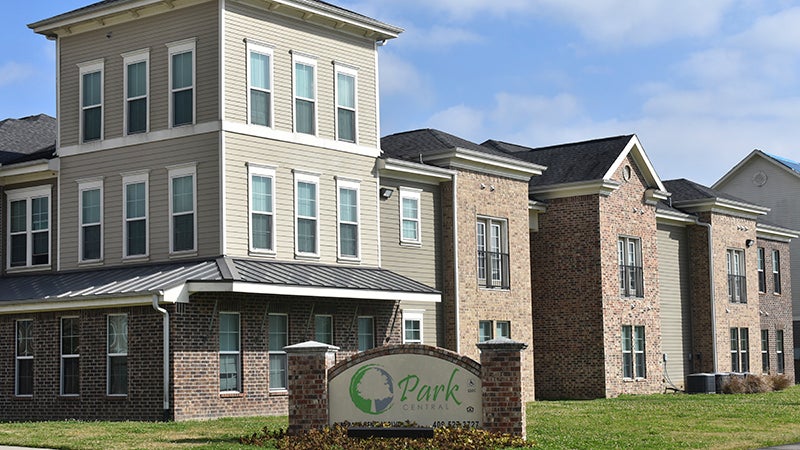Locals react to new law requiring notification if property is in 100-year floodplain
Published 12:40 am Saturday, January 8, 2022

- Park Central Apartments is managed by ITEX Group. A new law stemming from HB 531 came into effect Jan. 1 requiring landlords to notify prospective renters if their property is in a 100-year floodplain. (Mary Meaux/The News)
|
Getting your Trinity Audio player ready...
|
A new law requiring landlords to notify prospective renters if their property is in a 100-year floodplain is on the books and in effect.
The new law stemming from HB 531 took effect Jan. 1.
The Flood Disclosure Notice allows the renter/leasee to indicate whether they are aware that the unit they are renting is located in a 100-year floodplain.
Even if the unit is not in a 100-year floodplain, the unit may still be susceptible to flooding, according to the notice.
The Federal Emergency Management Agency maintains a flood map on its website searchable by address at no cost, the document reads.
Most renter’s insurance policies does not cover damage or loss from a flood, according to information from the Texas Apartment Association.
You don’t have to go very far back in local history to find devastating flooding. The worst was 2017’s Hurricane Harvey, which dumped so much rain it set a national record.
Patti Harrington, who is on the board of the Port Neches, Port Arthur, Nederland Board of Realtors, said the Flood Disclosure Notice would be given to prospective tenants and those renewing their leases.
Harrington understands the necessity of flood insurance for renters, just as there is a necessity for renters insurance.
As a realtor, Harrington must keep up with changes and new laws. If not, she said, she’s not doing her fiduciary duty as a licensee.
“I think this is very beneficial for tenants,” Harrington said. “A lot of people, even homeowners, think if they get insurance it covers everything, but flood is completely separate.”
While Realtors do not have to provide the forms it is a requirement for landlords or property managers.
John Gonzalez, director of marketing communications for ITEX Group, said ITEX is pleased to comply with HB 351, which makes new tenants aware of FEMA designated floodplain status for new rental agreements.
“We have closely tracked the legislation and will be following guidance from the Texas Apartment Association,” Gonzalez said. “ITEX believes in developing transformational experiences for our tenants, starting with transparency and preparedness.”
Jefferson County Pct. 3 Commissioner Michael Sinegal knows all too well about flooding.
“I lost a lot of personal belongings, photos and things I will never get back,” he said. “My mom died in 2018, and the storm was in 2017. I had two feet of water in my home and had this one chest that had all of the family photos. I had photos of my mom. I’ll never forget the day I had to throw that (chest) in the dumpster. It was waterlogged.”
And while Sinegal owns his home, he said he didn’t have insurance at that time — he does now — and can understand the need for renters to have the knowledge of prior flooding.
According to the Texas Apartment Association, there are a number of things that need to be disclosed to renters: whether the owner is aware the dwelling being in a 100-year FEMA designated floodplain and if the owner knows that flooding has damaged any portion of the dwelling at least once during the fire-year period immediately preceding the lease’s effective date.
The disclosure must be made in writing and applies to all residential leases in Texas entered into or renewed on or after Jan. 1, 2022.
It is based on a similar disclosure law for home sales, according to TAA.
The 100-year floodplain, according to the House Bill, means any area of land designated as a flood hazard area in which there is a one percent or greater chance of flooding each year by FEMA under the National Flood Insurance Act.





